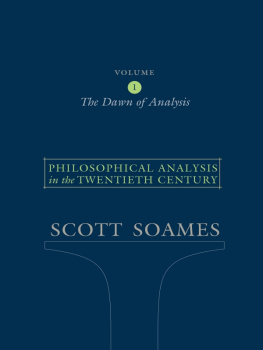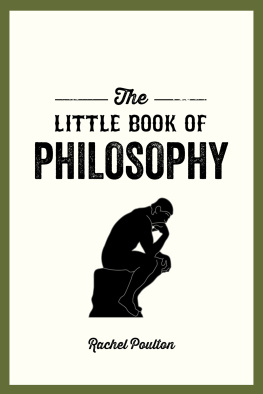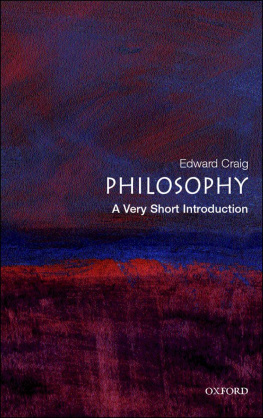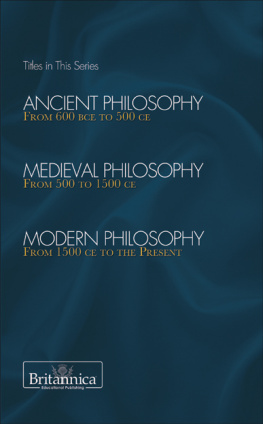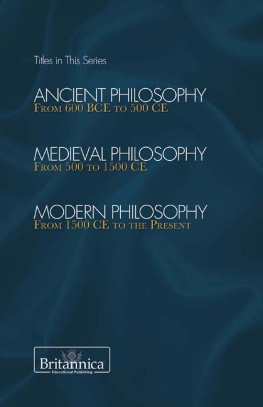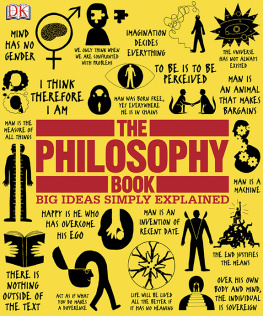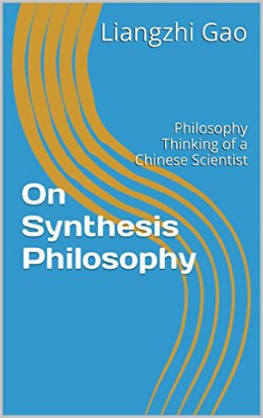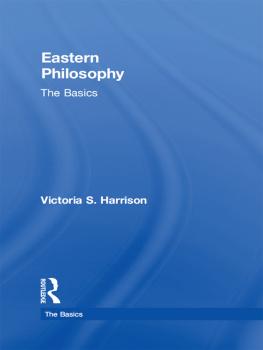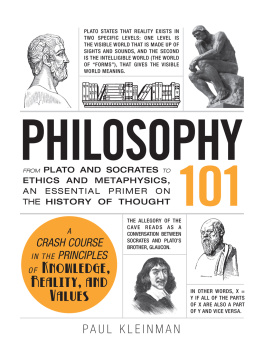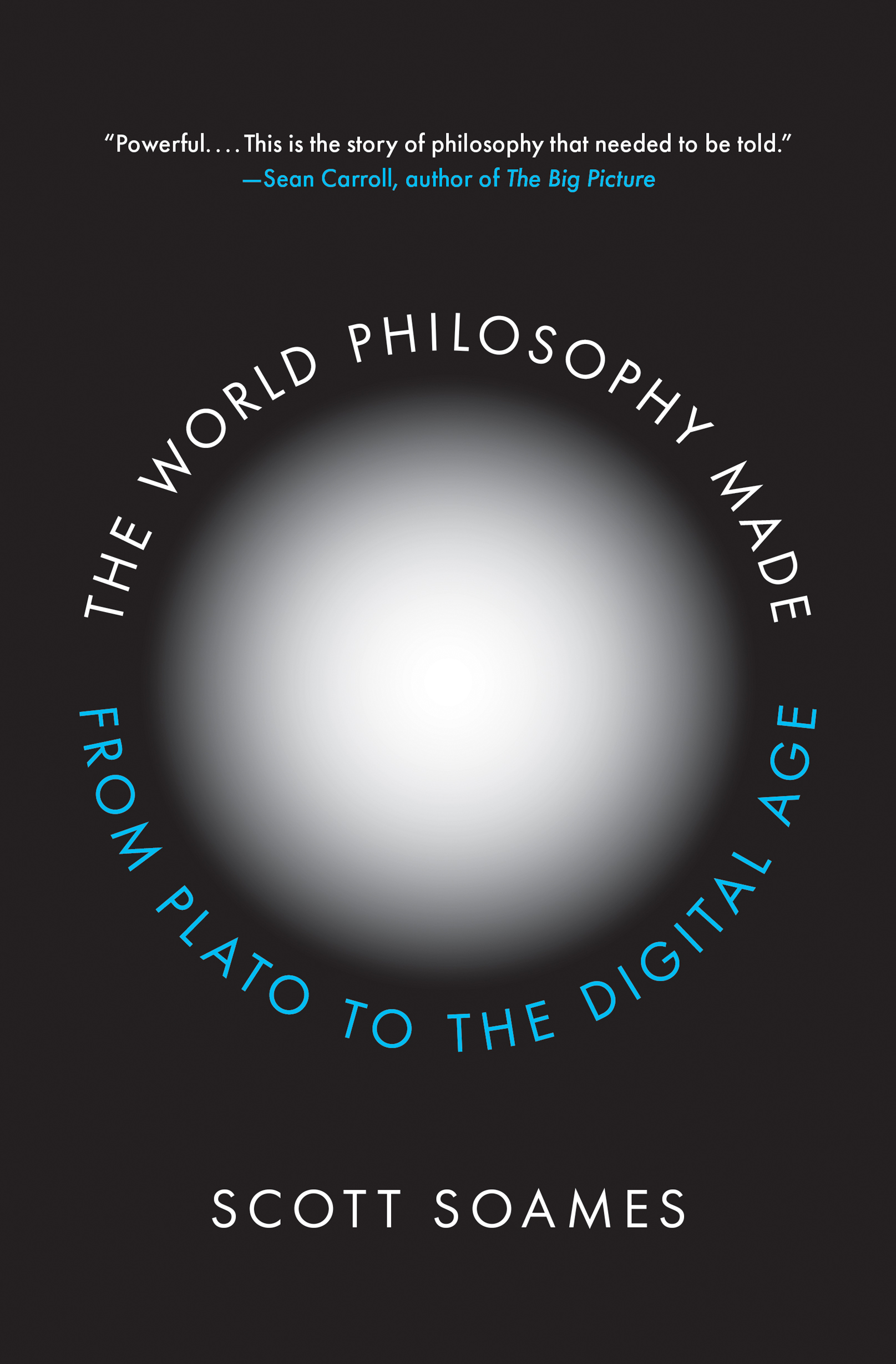Names: Soames, Scott, author.
Title: The world philosophy made : from Plato to the digital age / Scott Soames.
Description: Princeton, NJ : Princeton University Press, 2019. | Includes bibliographical references and index.
Subjects: LCSH: Philosophy and civilization. | PhilosophyHistory.
INTRODUCTION
In May of 2016 I published an article, Philosophys True Home, at the New York Times Opinionator blog. The article was written in response to an earlier piece, When Philosophy Lost Its Way by Robert Frodeman and Adam Briggle, which contended that western philosophys institutionalization in the university in the late nineteenth century separated it from the study of humanity and nature, and diverted it from its central task of guiding us to live virtuous and meaningful lives. I responded that recent and contemporary philosophy in the west had not lost its way, but, on the contrary, was continuing its record of impressive success both in laying the conceptual foundations for advances in theoretical knowledge and in advancing the systematic study of ethics, political philosophy, and human well-being. After the article appeared, my editor, Rob Tempio, at Princeton University Press, suggested that I explore the topic in a book-length work, which I was initially not inclined to do.
Before long, however, I became intrigued by the idea and convinced that it might serve a larger purpose. Having spent my adult life trying to advance the areas in philosophy at which I am most adept, I had not given sufficient thought to the overall shape of the discipline and its place in the modern world. I knew that, in the aggregate, we philosophers have many productive, though rather specialized, professional contacts with mathematicians, physicists, biologists, psychologists, linguists, cognitive scientists, neuroscientists, economists, political scientists, law professors, historians, classicists, and others. As chairman of the Department of Philosophy at the University of Southern California, I was also aware of positive receptions our philosophy-led interdisciplinary undergraduate majors Philosophy, Politics, and Law and Philosophy and Physics have received, which I hope our new offering, Philosophy, Politics, and Economics, will too. But I had, I am afraid, tended to dismiss, as unalterable, the depth of ignorance about who we are and what we do among the general educated public, large swaths of academia, and, most importantly, among many of the young who might otherwise profit from what we have to offer.
Thinking more about it, however, I have become more optimistic. I now believe that the ignorance I previously deplored is due, in part, to our own failure as philosophers to seriously address a larger audience. This book is an attempt to correct that by explaining what western philosophy is, what it has been, and what, I am convinced, it will continue to be. Contrary to the opinion of many, the study of western philosophy today is not the study of a frozen historical canon from Socrates and Plato to Kant, Hegel, and Nietzsche, offering a smorgasbord of previous responses to unanswerable questions yielding no genuine knowledge. Although history remains an important part of the subject, todays philosophers generate new philosophical questions, while offering better answers to traditional questions than those given by earlier thinkers. As a result, philosophical knowledge is increasing and the canon in philosophy is always expanding.
Philosophers have been, and continue to be, deeply involved in all important areas of intellectual concern, including the arts, the sciences, and the humanities. Properly understood, philosophy is not an isolated discipline, but the partner of virtually all disciplines. Nor is western philosophy the whole story. Although this book is concerned with it alone, many of the remarkable advances in civilization that western philosophy has helped to bring about have become the common property of all cultures. As more works in different philosophical traditions are translated and new bodies of secondary literature grow up, new syntheses will become possible, sparking new philosophical departures.
In sum, this book is about the contributions philosophers have made, and continue to make, to our civilization. Of course, it wasnt philosophers alone, whether western or not, who made the civilized world we enjoy today. But the effects of their efforts have been more profound and far-reaching than is commonly realized. Our natural science, mathematics, and technology, our social science, political institutions, and economic life, our education, culture, religion, and our understanding of ourselves have been shaped by philosophy. This is no accident; it is due to the essential interconnection of philosophy with all foundational knowledge.
Philosophy never advances against a background of rank ignorance. It flourishes when enough is known about some domain to make great progress conceivable, even though it remains incompletely realized because new methods are needed. Philosophers help by giving us new concepts, reinterpreting old truths, and reconceptualizing questions to expand their solution spaces. Sometimes philosophers do this when sciences are born, but they also do it as disciplines mature. As science advances, there is more, not less, for philosophy to do. Our knowledge of the universe and ourselves grows like an expanding sphere of light from a point of illumination. As light travels in all directions away from the source, the volume of the sphere, representing our secure knowledge, grows exponentially. But so does the surface area of the sphere, representing the border where knowledge blurs into doubt, bringing back methodological uncertainty. Philosophy monitors the border, ready to help plot our next move.
The reader will, I hope, gain a sense of what this means when moving through the book. The first six chapters cover ancient Greece, the Middle Ages, the Renaissance, and the sixteenth through eighteenth centuries, followed by the late nineteenth and early twentieth centuries. There you will see remarkable advances by all manner of intermixtures of philosophical thought with mathematical, scientific, political, and religious thoughtsometimes in single minds and sometimes in communicating minds. The focus will shift a bit when , attack pressing legal, political, moral, and even existential questions. Here no problems are definitively solved. The contributions, if they are such, lie in articulating productive perspectives for attacking them.


